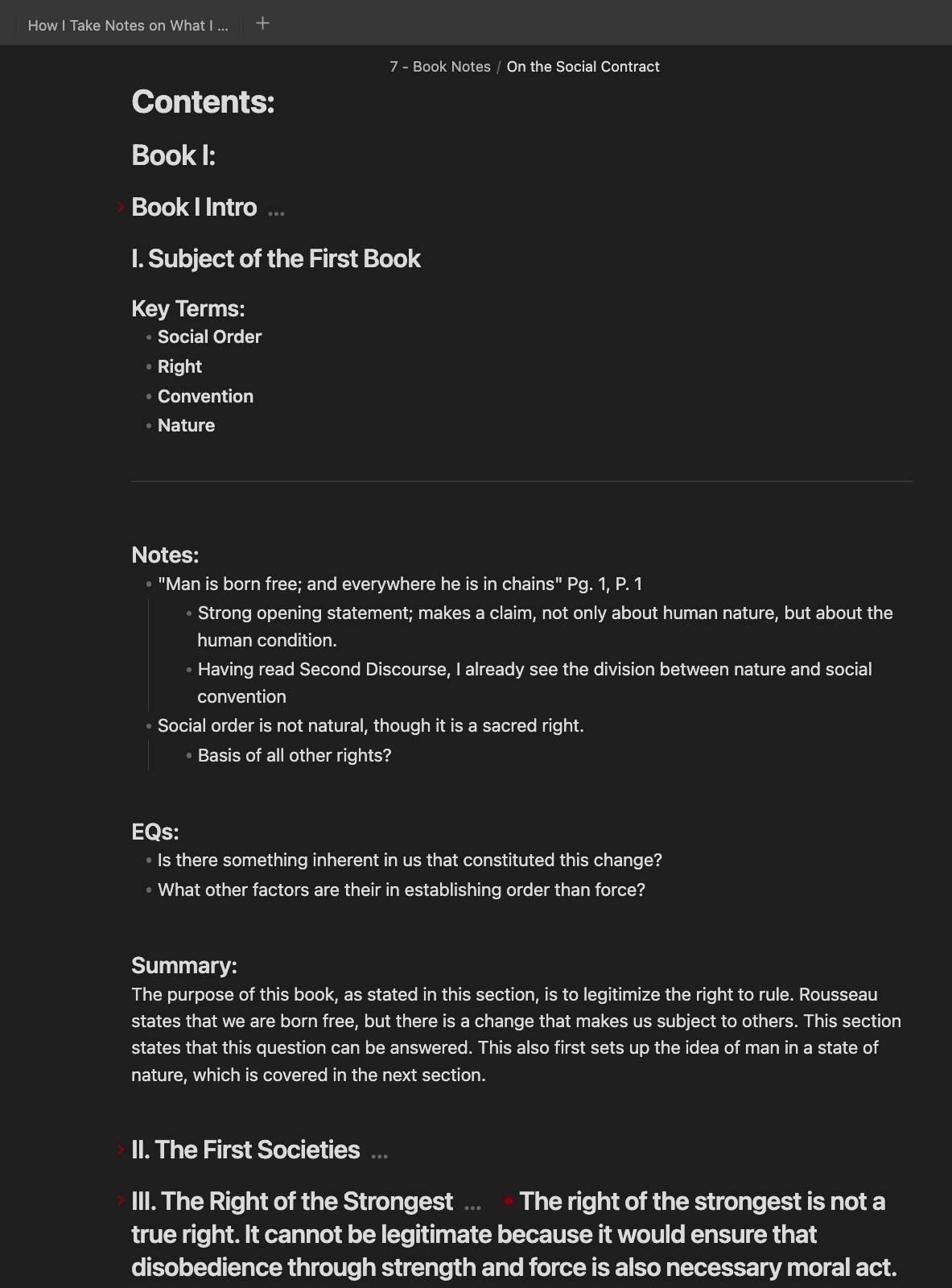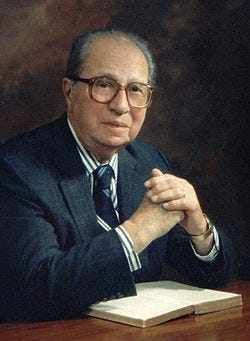
This week I finished up the first two books of On The Social Contract by Jean-Jacques Rousseau, and while I wanted to take to substack to talk about some of my initial thoughts so far, I also stumbled upon an essay that aided me along the way. So instead of just showcasing my note taking system and my thoughts on the section, I thought it would be a good time to bring this up as well. The post on Rousseau will be postponed until this upcoming week, normal schedule will resume after.
I've been a fan of Mortimer J. Adler's writings for some time. For those of you who don't know, Adler was, among other things, an American Philosopher, Exceptional Writer, and Educational Reformer. He was also one of the editors, along with Robert Hutchins, of the Great Books of the Western World series for Encyclopedia Britannica. Alder wrote about the life of the mind and how we can educate ourselves as adults, and as a society at large. His books talk about accessing information outside of a classroom and the importance of discussing and experiencing the books that we read. He was widely educated, not just in one specific subject.
As an avid learner and teacher, his writing has always struck a cord for me.
A Codified System of Annotation
The essay I found was *How to Mark a Book*, which I will link at the end of the article. Fans of Adler may recognize this as familiar because of his book titled *How to Read a Book*. Both are indispensable and widely overlooked skills; having the ability to do both well is, in my opinion, the shortest way to being able to take with you everything you've read.
I'm not going to give a summary of the essay; it's only four pages and by trying to distill it, I would only dilute it. I will, however give my account on why I think books should be marked in the first place.
For years I've struggled with students, friends, and even myself when trying to wring every last drop out of what I'm reading. Often we find it easy to get caught up in the idea of finishing a book and having read it, rather than working through and understanding its contents. Trust me, after slogging through a myriad of dense, philosophical works, you get nothing in return for just simply reading the words.
Marking a book is a sure fire way to read actively. Reading should be a fully engaging activity in which your mind has no room to dawdle or float off. That's not to say this is an easy task, especially in the distracted world that we live in, but without the activity of reading, we are bound to forget much more than we would have otherwise.
It also becomes a living document for future reads. When coming back to a book, it gives the reader ability to pick up where they left off. The ideas cultivated by a book are a part of an ongoing conversation with yourself as a life long learner. When you come back to a book, its as a new reader entirely.
The best part about this system entirely, is that it only requires a pencil.
My Note Taking System
My note taking system has changed, and is bound to change again, many many times. As a student, I was never told exactly how to take notes, only that I should. This never lead to much success, and my note taking strategy for much of college looked like a very basic bulleted list of important ideas, with a few add ons written underneath:
- Main point or idea.
- Something that adds to the idea.
Ad Infinitum.
This strategy of note taking isn't awful, but it certainly doesn't lend itself to much organization or further use, which I believe to be one of the most important aspects of note taking.
My current system still uses this, but only to a degree, and only when necessary. The current system I use is an adapted form of the Cornell Notes System. This system allows the note taker to not only take down the key points of the content, but also extend their ideas to essential questions and main themes, and forces them to summarize each section in their own words.
This can be used with good ol' pencil and paper, or any note taking software available. I use Obsidian for my note taking, but I've also used it with notion to great success.
The way I set mine up specifically is with different sections according to each type of information I want to take down.
First I make a section for the key terms used throughout the section. I usually do this while I'm reading and marking my book because this is when it most easily comes to me. It's important to jot down all the key terms that you find throughout the section as it will help to make a mental map of the ideas the author is playing with.
Next is a section for general ideas and important quotes from the section. Treat this like a catch all for the ideas being discussed. This should be the lengthiest portion of the notes, except for maybe the summary.
Then, once all of the general ideas have been recorded, you can start another sections where you can organize the notes into themes and larger topics that the author is bringing up. Along with this, I add in whatever initial questions come to mind.
Finally, after every section or chapter, write a summary to not only discuss what the author was trying to say, but also what you took from it. These sections will help you with the final process of the book which is to write a full review.
Your full review acts as your living memory of the book, something you can revisit once in a while to refresh your memory. Don't let this replace the act of rereading however. Rereading a book is essential to understanding it; no truly good books can be fully understood on the first run through.
Final Thoughts
If you want a more in depth look at systematic reading and annotating, I highly recommend the work of Mortimer J. Adler. Adler was an academic and intellectual that didn't guard the ideas of the Academy in an ivory tower, but rather made it his mission to share it with the people of this country and of the world. Two great books to start with of his are, How to Read a Book, and How to Speak and How to Listen. These two books help to get a handle on taking everything you can from the written content you're given, and how to grapple with big ideas.
Also, If you like this kind of content, where I go through the processes I use for learning and self education, let me know in the comments or a direct message. I want this publication to be driven by the people who read it!




